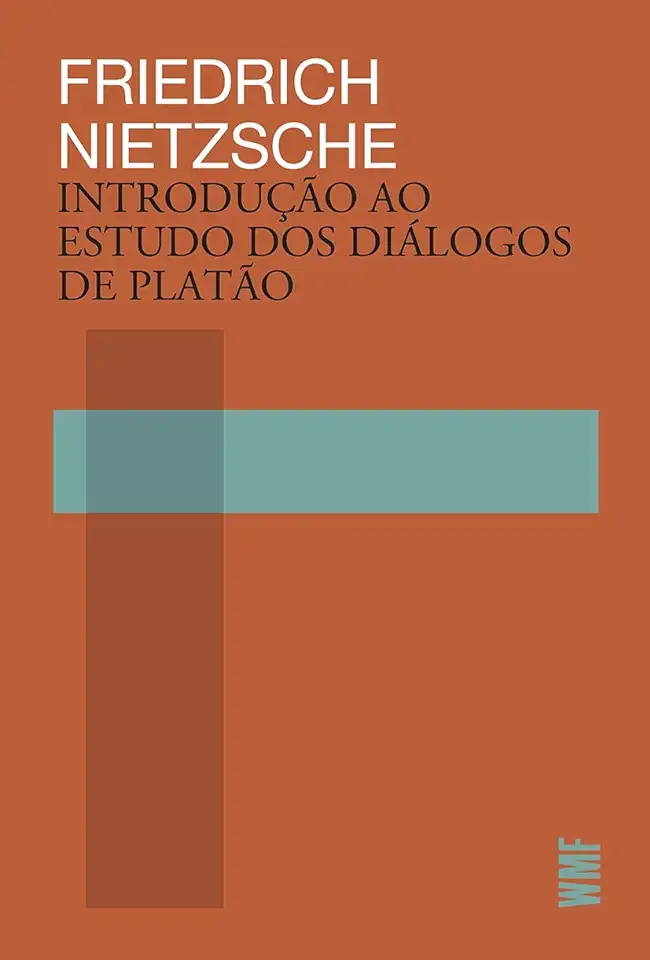
Introduction to the Study of Plato's Dialogues - Nietzsche, Friedrich
Introduction to the Study of Plato's Dialogues by Friedrich Nietzsche
Friedrich Nietzsche's Introduction to the Study of Plato's Dialogues is a seminal work of philosophy that offers a unique and provocative perspective on Plato's writings. Nietzsche argues that Plato's dialogues are not simply philosophical treatises, but rather works of art that must be interpreted in their entirety. He also contends that Plato's philosophy is not a static system of thought, but rather a dynamic and evolving process of inquiry.
Nietzsche's Introduction is divided into three parts. In the first part, he discusses the general nature of Plato's dialogues and their relationship to philosophy. In the second part, he examines the specific content of Plato's dialogues, focusing on such topics as the theory of Forms, the nature of knowledge, and the role of the philosopher in society. In the third part, Nietzsche offers his own interpretation of Plato's philosophy, arguing that it is a fundamentally tragic vision of the world.
Nietzsche's Introduction is a challenging and rewarding work that is essential reading for anyone interested in Plato's philosophy. Nietzsche's insights into Plato's thought are both original and provocative, and his writing is always engaging and thought-provoking.
Nietzsche's Interpretation of Plato
Nietzsche's interpretation of Plato is fundamentally tragic. He argues that Plato's philosophy is based on the belief that the world of appearances is a mere illusion and that the only true reality is the world of Forms. This belief leads Plato to reject the world of the senses and to embrace a life of asceticism and contemplation.
Nietzsche argues that Plato's philosophy is tragic because it denies the value of life in the here and now. He believes that Plato's rejection of the world of the senses is a form of escapism and that it ultimately leads to a loss of vitality and creativity.
Nietzsche also argues that Plato's philosophy is tragic because it is based on a false dichotomy between the world of appearances and the world of Forms. He believes that this dichotomy is artificial and that it ultimately leads to a denial of the unity of the world.
The Value of Plato's Philosophy
Despite his criticisms of Plato's philosophy, Nietzsche ultimately believes that it is a valuable and important work of thought. He argues that Plato's dialogues are a source of great wisdom and insight and that they can help us to understand ourselves and the world around us.
Nietzsche also believes that Plato's philosophy is a challenge to our own thinking and that it can help us to become more critical and independent thinkers. He argues that Plato's dialogues are not meant to be simply accepted or rejected, but rather to be questioned and debated.
Nietzsche's Introduction to the Study of Plato's Dialogues is a valuable resource for anyone interested in Plato's philosophy. Nietzsche's insights into Plato's thought are both original and provocative, and his writing is always engaging and thought-provoking. Whether you agree with Nietzsche's interpretation of Plato or not, his Introduction is sure to challenge your thinking and help you to gain a deeper understanding of Plato's philosophy.
Why You Should Read Introduction to the Study of Plato's Dialogues
If you are interested in Plato's philosophy, then Nietzsche's Introduction to the Study of Plato's Dialogues is a must-read. Nietzsche's insights into Plato's thought are both original and provocative, and his writing is always engaging and thought-provoking. Whether you agree with Nietzsche's interpretation of Plato or not, his Introduction is sure to challenge your thinking and help you to gain a deeper understanding of Plato's philosophy.
Here are a few reasons why you should read Introduction to the Study of Plato's Dialogues:
- Nietzsche's interpretation of Plato is unique and provocative. He argues that Plato's philosophy is not a static system of thought, but rather a dynamic and evolving process of inquiry.
- Nietzsche's insights into Plato's thought are both original and provocative. He offers a fresh perspective on Plato's philosophy that is sure to challenge your thinking.
- Nietzsche's writing is always engaging and thought-provoking. He has a gift for expressing complex ideas in a clear and concise way.
If you are interested in Plato's philosophy, then Nietzsche's Introduction to the Study of Plato's Dialogues is a must-read. It is a challenging and rewarding work that is sure to enrich your understanding of Plato's thought.